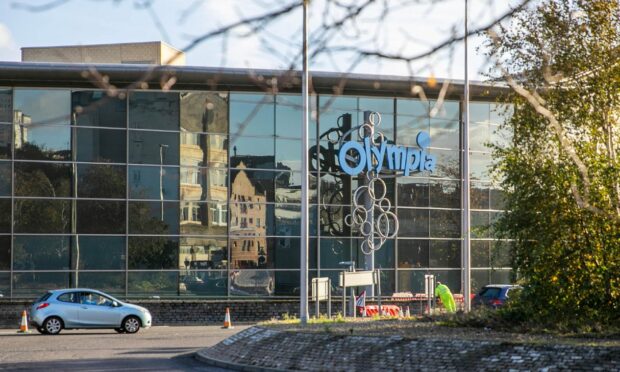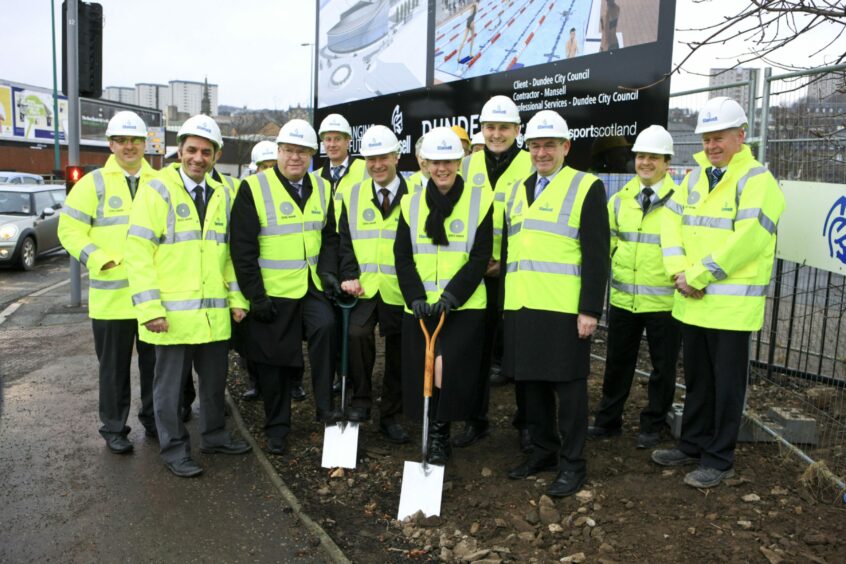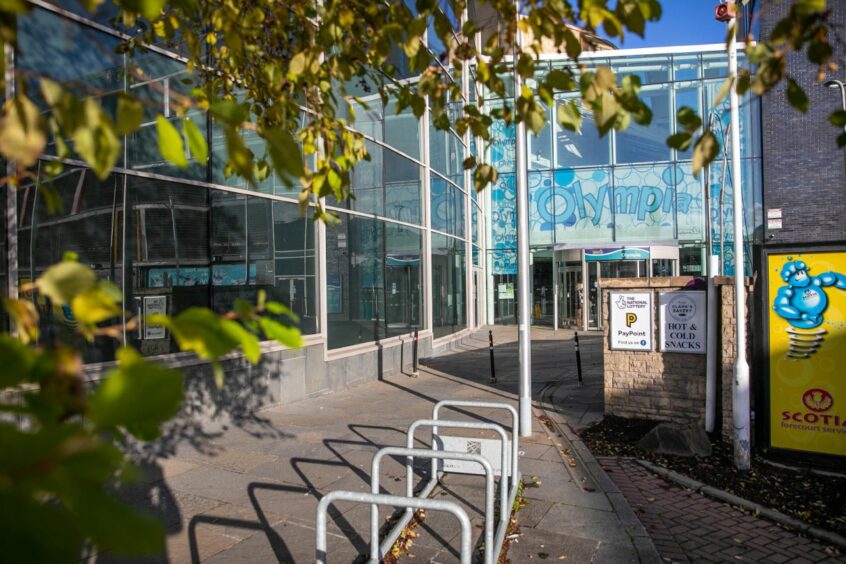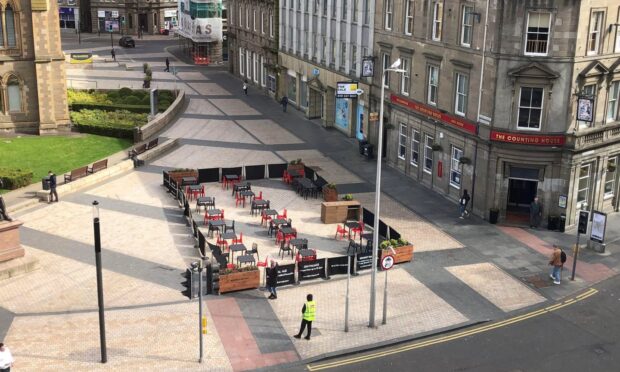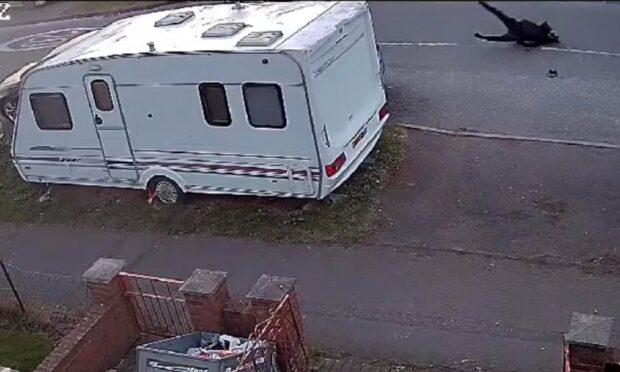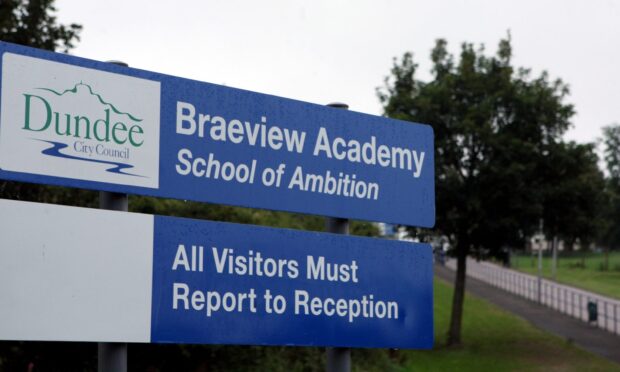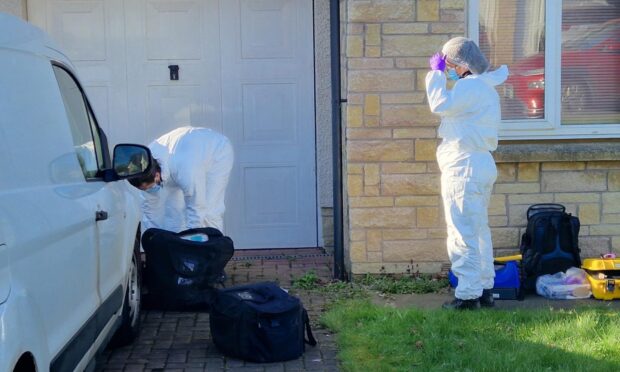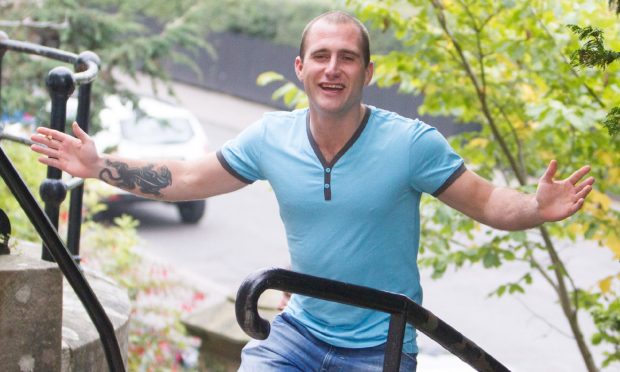A council committee meeting held to discuss the closure of Dundee’s Olympia swimming pools has led to more questions than answers.
The £32 million facility could be shut until late 2022, or early 2023, as a raft of problems have been discovered within the centre.
Corrosion of the flumes and light fixings will require up to £4.5m in repairs.
Some details of what has gone wrong have already been revealed – but many key questions remain unanswered.
We examine them here.
1. What has caused the corrosion?
No definitive answer has yet been given to this most crucial of questions, though a few theories exist.
Some have suggested that there may have been issues with the building from the very beginning.
Concerns were first raised after its 2013 opening was delayed by about six months due to a variety of construction complications.
At the time, the Evening Telegraph was refused access to correspondence between the council and the pool’s construction firm Mansell, which could have explained the delay.
Opposition councillor Richard McCready accused the council of a lack of openness – an allegation he has made again this week.
On Monday, councillors at the city development committee voted 15-13 against the release of all correspondence about the Olympia’s condition that has been shared between the council and arm’s-length body Leisure and Culture Dundee between 2013 and this year.
Another suggestion made during the council meeting is that use of particular chemicals may have hastened corrosion.
Neil Martin, the council’s head of design and property, says the swimming pools have an “intense atmosphere in terms of the heating and the chemicals used”.
He says the chemical dosing “may be a factor” but has stressed the likelihood is that there are various factors involved.
He said: “We will take advice from specialists once they have carried out a full survey of the centre.”
Mr Martin says one of the main issues, that of “superficial corrosion” in the flumes, has happened “over a period of time”.
And he says issues in the plant room and “ancillary equipment”, such as mechanical and electrics, could be due to the fact that they would usually have a lifetime of about 10 years and simply need replaced.
The council is also looking at whether any companies and individuals involved in building the Olympia could be liable for the problems which have arisen.
Roger Mennie, head of legal services, said: “I will be reviewing the situation here with other officers.
“If I believe there is a stateable case for taking action against any of the contractors or sub-contractors then that’s the course I would adopt.”
2. When was corrosion first found?
A report to councillors says the issue with the light fittings was discovered in September this year, leading to October’s closure, during which other problems were found.
But it was suggested by councillor Charlie Malone that some form of corrosion within the building may have been first identified as far back as 2017.
Robin Presswood, the executive director of city development at the council, says that “wouldn’t be a surprise” but has been unclear on whether this claim is true – raising questions over what was known before this year.
3. Why has it not been treated before now?
Mr Presswood says the Olympia has not been closed for major repairs until now because a “longer term view” is needed.
He explained that this would mean closing for longer on fewer occasions, rather than repeatedly.
But the council and Leisure and Culture Dundee have not been totally clear on why there has not been a regular programme of closures to allow for maintenance – or whether that would have prevented this prolonged closure.
Regular maintenance was carried out in the previous Olympia, centring on boiler servicing.
This gave workers the opportunity to address any other issues on an annual basis.
Other similar facilities, such as Perth Leisure Pool, are regularly shut for essential maintenance.
4. Why was work not carried out during the Covid-19 lockdown?
The Olympia, like all leisure facilities of its kind, was shut for months when the Covid-19 pandemic hit.
Rules prevented people from going to swimming pools to limit the spread of the virus.
In the early stages of lockdown, only essential work was allowed – and it may be the case that maintenance of pools that were not open to the public did not fall into that category.
But many members of the public have questioned whether, as time went on – and more people returned to work – some inspections and maintenance work could have taken place then, therefore lessening the impact on users.
It is unclear what, if any, work was done during the enforced Covid closure.
5. What will the lasting impact be on people who train and learn at the Olympia?
There are a number of competitive swimming clubs that use the Olympia while swimming lessons are also held there.
The council and Leisure and Culture Dundee say they are working together to see if swimming pools within schools can be utilised.
Judy Dobbie, director of Leisure and Culture Dundee, said: “Our priority is to, as far as we can, transfer services to the other facilities that we have across the city.
“With the exception of Lochee, that does involve the school pools.
“We are looking at the optimum times we can cover, which involves early starts in the mornings and at nights, as well as weekends.
“We’ve also asked for clarity from some of the schools on whether there’s any potential for access during the day that would help facilitate some of the clubs that we have.”
